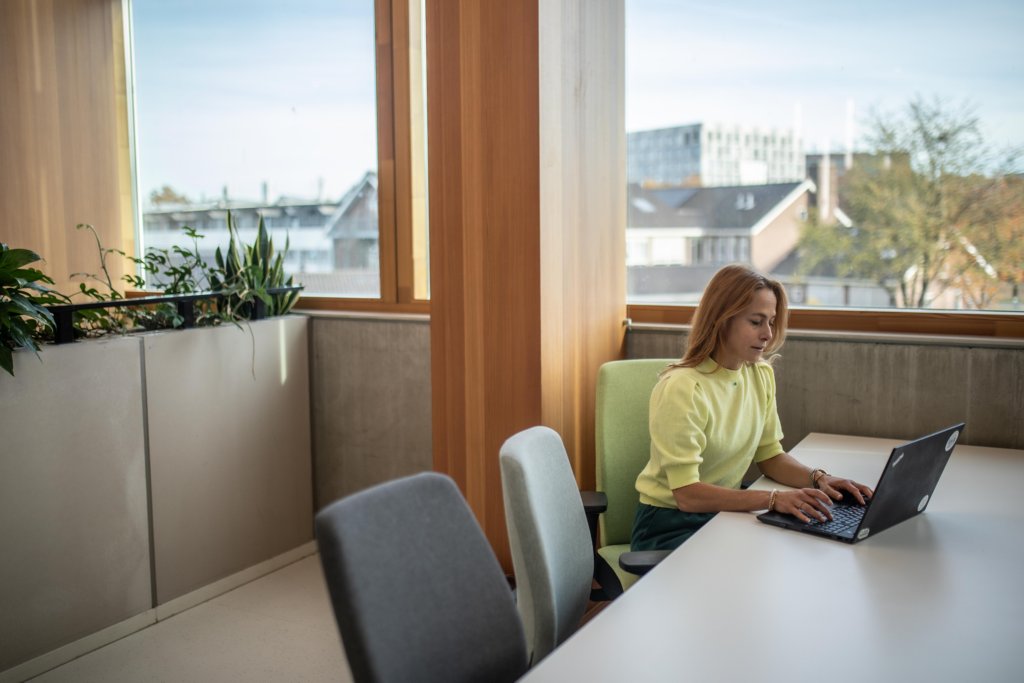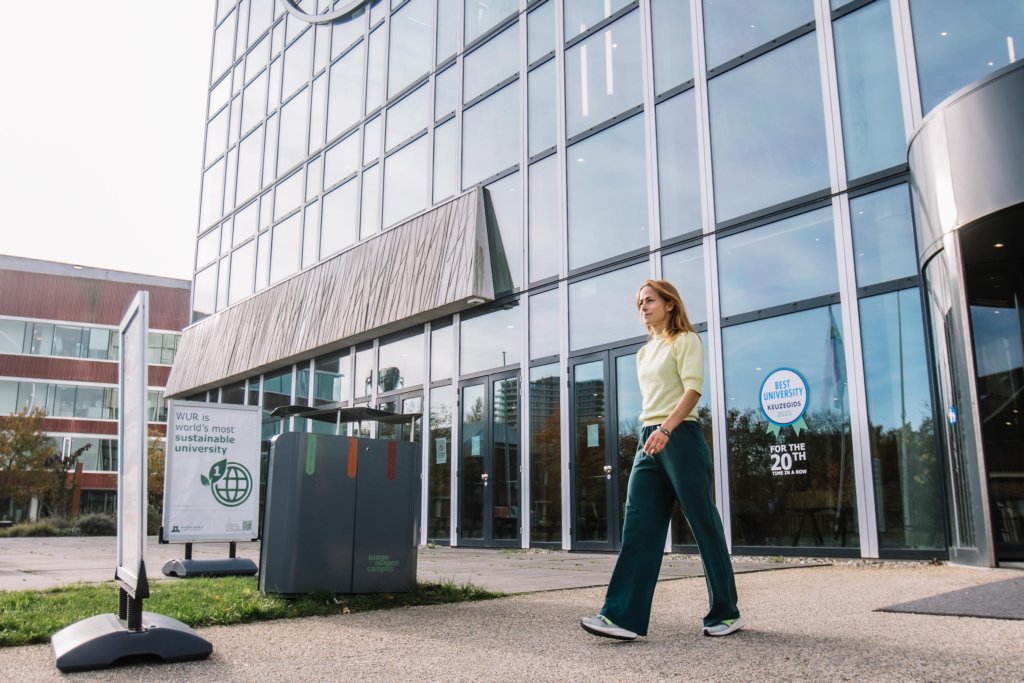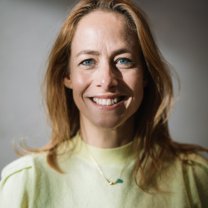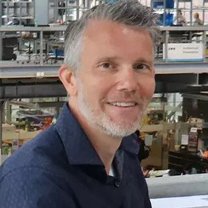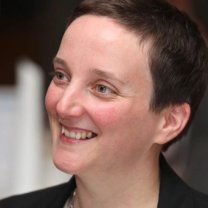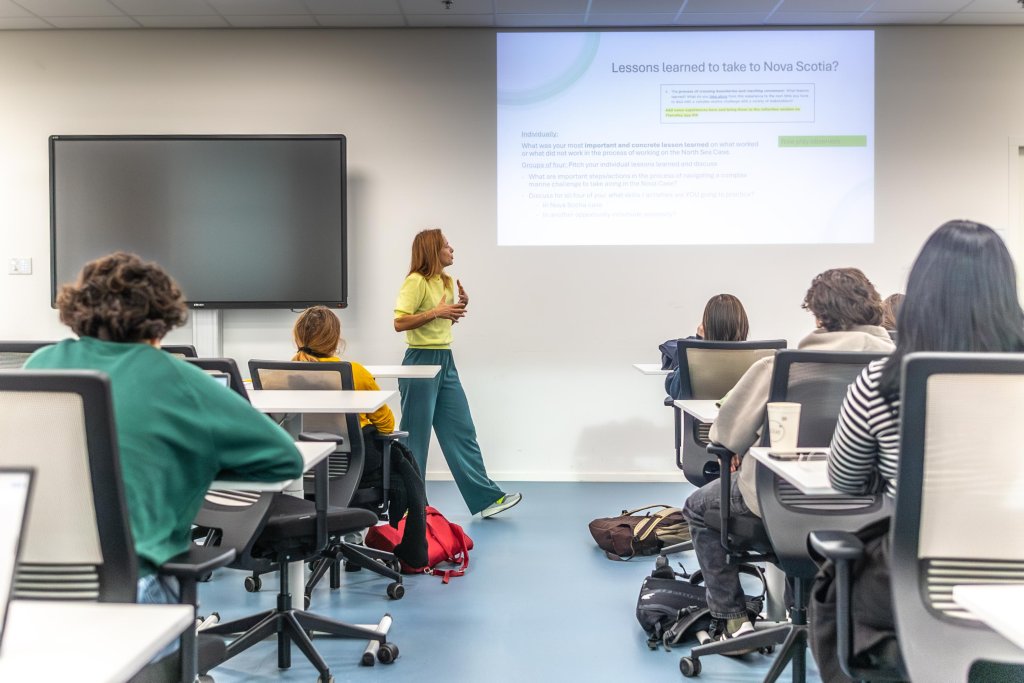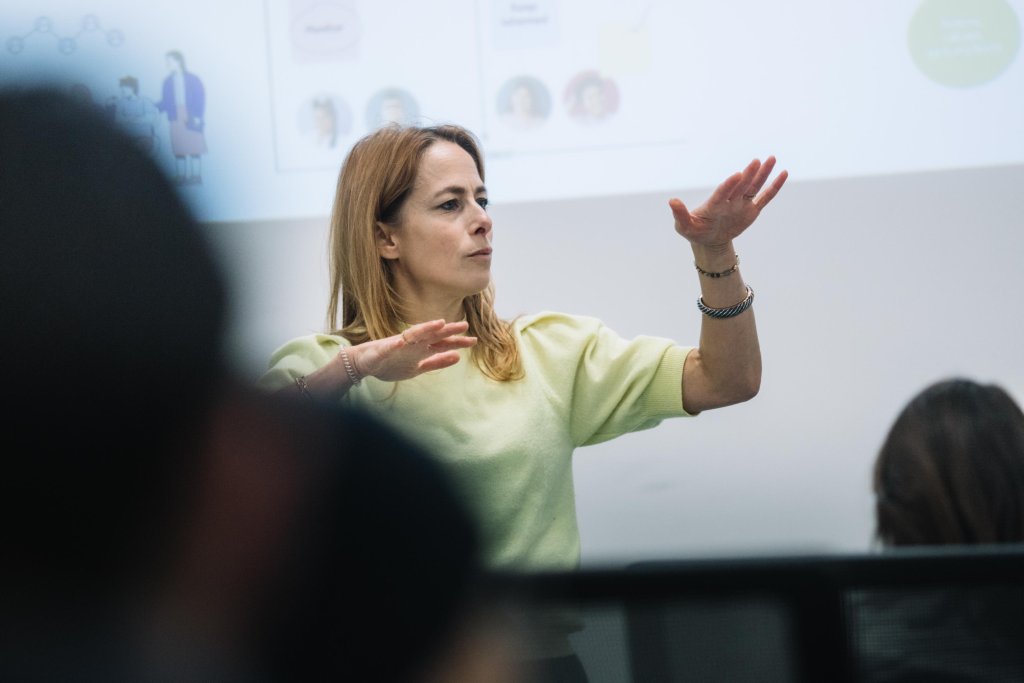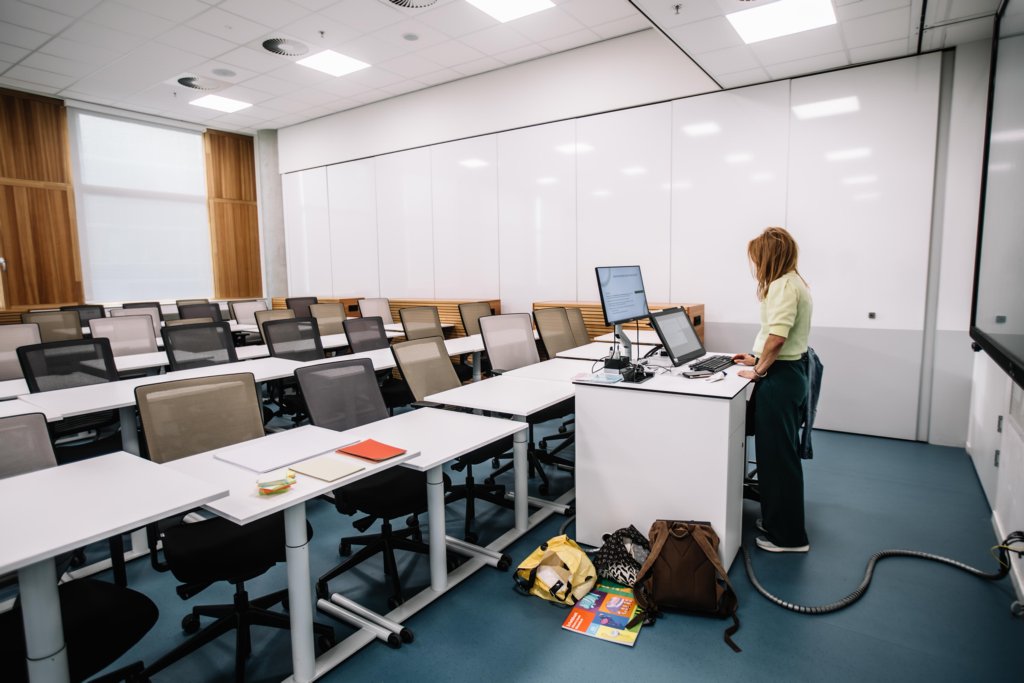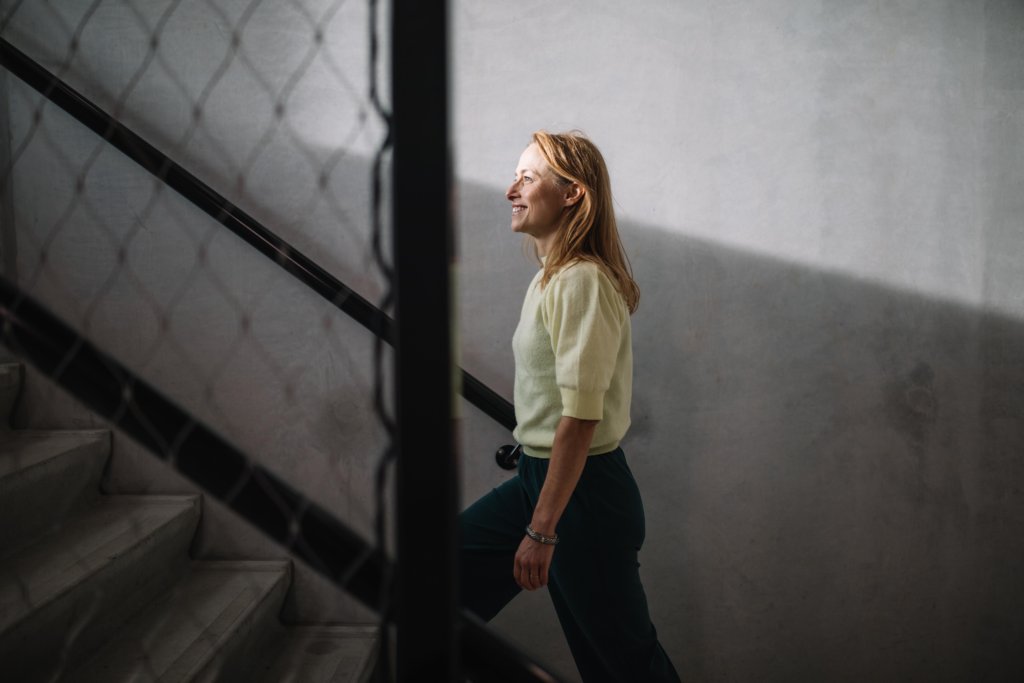III - "A marathon not a boxing match" - Working together for sustainable educational innovation
4TU.CEE’s anniversary year is drawing to a close. The Centre is already looking to the future: its new Strategic Plan is ready. Four experts (see text box) share their perspectives on this, and on 'the engineer of the future' in general, in this third and final part of the interview series celebrating 10 years of 4TU.CEE.
They’re eager to start with the positive side. Judith Gulikers and Remon Rooij, board member and chair of 4TU.CEE are taking a moment to reflect. While these are challenging times, they’re also very pleased with what 4TU.CEE has achieved so far. “When we attend conferences, all our international colleagues are a bit jealous,” says Rooij, “that we have a national hub of institutions that are collaborating on engineering education by conducting research together, developing education, and establishing a knowledge agenda. Colleagues who are collaborating and sharing.”
“It isn’t something to be taken for granted: looking at education and the development of our teachers in such a critical and constructive way,” Gulikers emphasises. “It’s a combination of the ‘engineering mindset’ and educational science. That combination is what 4TU.CEE stands for: in order to improve engineering education, you need people who know how to meaningfully look at education and reflect on it. What works in education, and what doesn’t – and why?”
Rooij calls it a ‘scholarly way’ of developing education and educational expertise. “Our teachers aren’t traditionally trained in this. With 4TU.CEE, we want to bridge the gap, together with the Centres for Teaching and Learning at the four universities. Engineers already master this way of thinking regarding engineering: design, test, evaluate, improve, test again. The trick is to apply this design approach to your education.” Gulikers: “This is how you build an evidence base of what works and what doesn’t. That’s what 4TU.CEE stands for: evidence-informed educational innovation.”
Advancing Teaching Cultures
Someone who knows this probably better than anyone is British education consultant Ruth Graham. Internationally, she has made a name for herself as the leading expert in the field of teacher development in higher education. In 2018, she published the Career Framework for University Teaching, which describes a step-by-step approach for professional development from an ‘effective teacher’ and ‘collegial teacher’ to an ‘institutional leader’ or a ‘scholarly teacher’, and finally to a ‘national/global leader in teaching and learning’. “I spoke at the launch event of 4TU.CEE in Delft”, she reminisces, “which was a fabulous, high-energy and very focused event. Since that time, I have been involved in various projects within 4TU, including through the Advancing Teaching initiative, which is working to improve how university teaching is rewarded in academic careers.”
Three runs of the Teaching Cultures Survey – undertaken in 2019, 2022 and 2025 and involving 27 universities worldwide – as well as a Global Mapping study, have already shown tangible successes, says Graham. “We are now seeing universities from across the world that are transforming how they recognise and reward teaching – not just in their institutional policies and practices, but in the values and cultures at these universities, as experienced by the academics themselves.”
Lever for change
Graham’s studies have also identified success factors. “One of the clearest findings is the importance of department heads. Much comes down to whether people see their department head as committed to rewarding teaching in academic careers – if you believe that your department head is committed, you are much more likely to be convinced that your university as a whole will value and reward your contributions to education.”
Collaborations such as 4TU.CEE are “a huge lever for change”, as Graham puts it. “The most successful and sustainable transformations we are seeing now in higher education, and that are so needed to address our current societal challenges, are built on these collaborations. 4TU is a fascinating and positive case study. Sharing successes and failures is pivotal in achieving these transformations.”
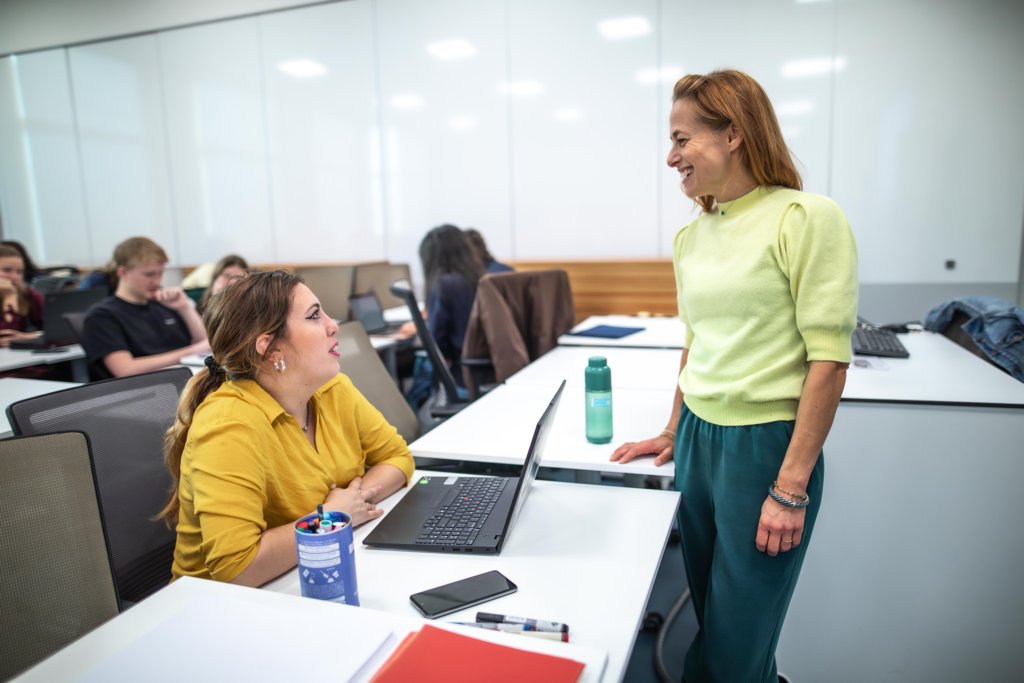
Political challenges
The work doesn’t stop here, as Graham points out. “There’s still a lot to be done, for instance, on interdisciplinary and challenge-based learning, the role of AI, developing student mindsets and entrepreneurship, schemes for reward and recognition of teaching careers… But also the agility and resilience of the institutions themselves. After all, this is a time of significant flux, as well as environmental, political and financial challenges.”
4TU.CEE is doing well in this regard, says Graham. “The centre is agile by design, so it can be responsive to the challenges facing engineering education, engineering academics and the next generation of engineering students.” That’s where it can make a difference, also internationally, says Graham: “Academics need a place where they can tackle these issues together, combine their disciplines, and share their strategies and ideas. That is incredibly powerful. Colleagues around the world are now asking themselves: How can we create such collaborative centres for innovation in our own countries?”
Catalyst for visions
4TU board members Judith Gulikers and Remon Rooij are pleased with Ruth Graham’s theoretical framework and empirical work – and they too are already seeing its practical impact. “We’ve now incorporated all these elements into the new 4TU.CEE Strategic Plan 2027-2030, which will be adopted this fall,” says Gulikers. “It reflects the visions of the four Universities of Technology, which now align beautifully with each other and with Ruth’s Framework.”
Rooij adds: “As 4TU.CEE, we now essentially have a dual role. As an accelerator of the implementation of our institutions’ educational visions, but also as an inspirator for those visions themselves. That’s a very rewarding role. And a very exciting one, especially in these financially and politically uncertain times.” Gulikers also notes: “As soon as budget cuts are on the table, you see a decline in attention to educational research and evidence-based learning. We find that very worrying.”
Importance of facts
This concern may not have been very visible in previous cabinets. But change is brewing beneath the surface, at least if you ask Luc Stultiens. The young GroenLinks-PvdA Member of Parliament is making some time in the week before the elections to discuss this. “Science and education are so closely linked to all the major challenges of our time: climate, energy, healthcare, the ageing population, housing...,” he says. “In all these areas, it’s important that we can substantiate our policies with facts. With science. And therefore that we train people who are adequately equipped to do so.”
Anticipating the future isn’t easy, Stultiens knows. “Take 4TU.CEE, for example, which has existed for ten years. Ten years ago, AI didn’t exist in the form we know it today. Not even during my own studies. So much has happened since then. The world looks completely different. That’s why it’s so important to have a continuing focus on educational innovation. Exactly what 4TU.CEE is doing now: educational innovation based on research.”
Academic freedom
But it’s precisely in the current political landscape that science and education are under pressure. “First of all, because of all the budget cuts,” says Stultiens. “But also because of the resistance to internationalisation in higher education – while we desperately need those talented people from abroad.” And then there’s the growing distrust in science, he notes. “That’s extremely damaging.”
Stultiens has another major concern: the erosion of democratic values. “Academic freedom is one of them,” he says. That freedom is also under pressure. In America, certain research terms are already banned, databases are blocked, and funds are withdrawn. Dutch politicians are also increasingly undermining the very foundations of science and education. We need to provide much stronger legal protection for that freedom, so that academics can truly do their work independently. A country like Germany is already much better at this than we are.”
Knowledge Country
These are uncomfortable truths, Stultiens notes. “But we must keep speaking them out. These are things that create tension, things that people don’t want to hear, but that need to be said. Today, scientists hardly dare to engage in public debates anymore. You see them less and less on talk shows. But I’d like to see them much more. Also to show the new generation: this is what science means. These are facts, and those are opinions. And that’s not about freedom of speech—that’s something completely different. Seeing that difference is something you have to keep training.”
If it were up to Stultiens, our country would focus much more on becoming ‘the Netherlands, a Knowledge Country’ in the coming years. “There wasn’t much discussion about that in the major election debates,” he notes, “and not in society either. But that’s a two-way street, of course. Yet this knowledge culture is precisely the Netherlands’ added value. We must cherish and stimulate it. It doesn’t happen automatically. I think centres like 4TU can play a major role in that.”
Good things to fight for
It pains Stultiens to see that this knowledge culture has been neglected by past cabinets. “I hope that will change now,” he says, looking ahead to a new formation. “Knowledge and science deserve to be supported, not dismantled. It’s a very foolish choice to cut back on innovation, research and education. Every euro you invest there pays for itself many times over.”
Doesn’t he sometimes get pessimistic, as a young parliamentarian with an academic training? “Sometimes yes, but it also makes me combative,” Stultiens replies. There’s so much great stuff to fight for. Science has brought so much progress in recent decades. It’s actually incredible. We need to show that more often: that we really need that knowledge for all these major transitions.”
Optimism and perseverance
Stultiens is also optimistic because he believes things can be done better: “We have so many universities and universities of applied sciences, all of which are fantastic. And we have unique partnerships, like 4TU. So if there’s one place where we can work on these major challenges, it’s here. In that respect, we’re doing really well.”
Rooij and Gulikers share that optimism. Gulikers: “Internationally, the Netherlands is also viewed that way: you’re all just doing it.” Rooij: “It’s also in the nature of engineers: positivity, an action-oriented approach. Perseverance, courage—and yes, optimism. Even in a difficult political landscape. As educational leaders, we must continue to stand up for our own values. It’s a matter of perseverance. Not a boxing match, but a marathon.”
Luc Stultiens: “We stand on the shoulders of giants. I sincerely hope that future generations can stand on our shoulders as well.”
